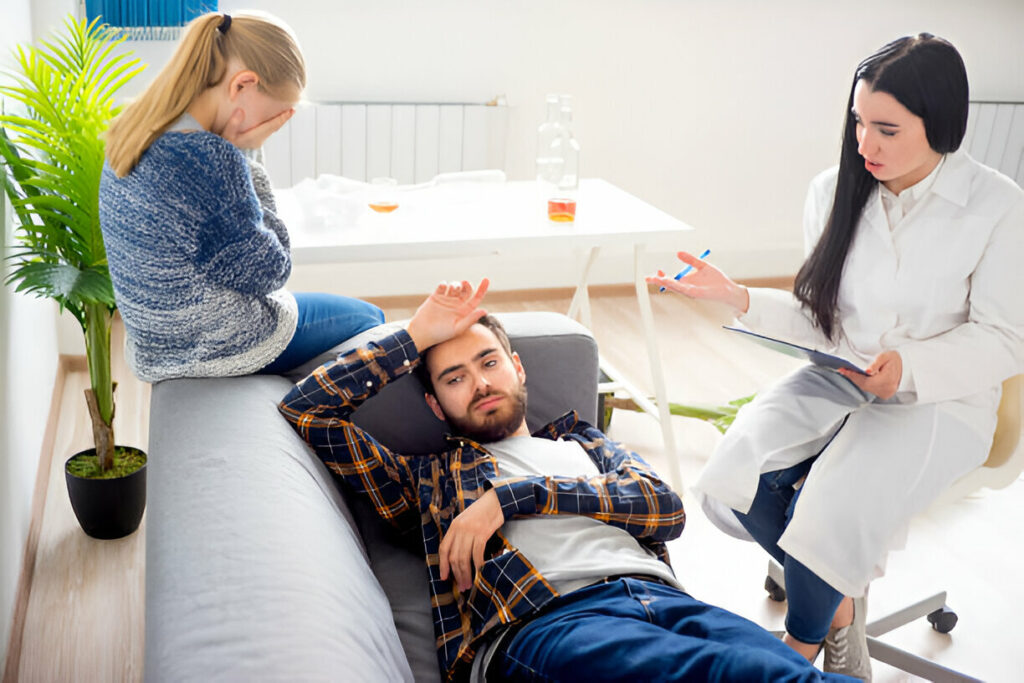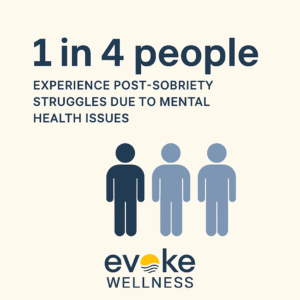I didn’t expect to feel worse after getting sober.
At first, I chalked it up to adjustment. I thought maybe I just missed the routine of chaos. But weeks turned into months, and instead of feeling more alive, I felt like I was fading. Not because I wanted to drink or use again—but because I didn’t know how to be okay without it.
Nobody really talks about that part.
You get through the early days of recovery, and everyone claps. You’re the success story. The comeback. But when the dust settles and the applause stops, what happens if you’re still not okay?
That was me. Sober, but secretly miserable.
The Invisible Struggle After Sobriety
I hit my one-year sobriety milestone and smiled for the photo. Chips in my pocket, sponsor on speed dial, daily gratitude lists—I did all the things.
But inside, I felt numb. Disconnected.
I still woke up with anxiety choking my chest. I still couldn’t concentrate at work. I still replayed old traumas every night before falling asleep. The only difference now was I didn’t have a substance to escape into.
And that made the silence feel even louder.
The worst part? I felt guilty for not feeling better. People in my life said things like, “You’ve come so far!” and “You must feel amazing!” I nodded. But inside, I was thinking, Why do I still feel broken?
Then I Heard the Words: “Dual Diagnosis”
It happened casually. Someone in a group meeting mentioned “dual diagnosis” like it was common knowledge. I nodded along like I knew what they meant—but I didn’t.
Later, I looked it up: dual diagnosis = when someone has both a mental health condition and a substance use disorder.
Something in me clicked. Like a missing puzzle piece fell into place.
My addiction wasn’t the whole story. It was one way I was trying to cope. Beneath it, there were layers—of depression, of anxiety, of trauma I’d never really dealt with.
That night, for the first time in months, I felt something that looked like hope.
What Dual Diagnosis Treatment Gave Me That Traditional Recovery Didn’t
I’d been through outpatient rehab before. I knew the routines—group therapy, relapse prevention, goal setting. And those things helped me get sober.
But they didn’t help me heal. Not fully.
When I entered a dual diagnosis treatment program, it felt different from day one.
My intake didn’t just ask about drug history or cravings. They asked about sleep. Flashbacks. Self-worth. Suicidal thoughts. Family dynamics.
I didn’t have to pretend my depression was just post-acute withdrawal. I didn’t have to minimize the fact that my anxiety kept me awake most nights.
They didn’t treat me like a broken addict. They treated me like a whole person with complex needs.
Here’s what stood out:
-
I worked with both addiction specialists and mental health clinicians.
-
My treatment plan included trauma therapy and psychiatric care.
-
I learned coping skills not just for cravings—but for sadness, fear, and shame.
-
I didn’t feel rushed to be “fixed.” I felt invited to feel safe.
Healing Is Different Than Surviving
There’s a big difference between not using and feeling well.
Getting sober was the start. But it wasn’t the finish line.
For so long, I believed the lie that if I still struggled after quitting, it meant I was doing something wrong. That I wasn’t trying hard enough. That I didn’t “want it” bad enough.
But dual diagnosis care helped me understand: there were real mental health wounds beneath my substance use. And they needed more than willpower to heal.
I began to untangle my trauma from my identity. To name things I thought were just personality flaws. To speak honestly in therapy without fearing judgment.
And slowly, things started to shift. I felt more grounded. More real.
I laughed again—not the forced kind, but the real kind that bubbles up from your chest. I stopped bracing for emotional impact every time I walked into a room.
Sobriety helped me survive.
Dual diagnosis treatment helped me come alive.
You’re Not Alone in Feeling “Off” After Sobriety
If you’re reading this and silently nodding—if you’re sober but still secretly struggling—you’re not alone.
So many of us hit that invisible wall after the pink cloud fades. We expect to feel free, but instead, we feel flat. It doesn’t mean you failed. It might just mean there’s more going on.
And there’s real help for that. The kind that honors your sobriety and your humanity.
Evoke Wellness in Ohio offers a dual diagnosis treatment program that does just that. It’s not about fixing you. It’s about helping you feel whole.
FAQ: Understanding Dual Diagnosis Treatment
What exactly is dual diagnosis treatment?
It’s an integrated approach that treats both substance use and mental health disorders at the same time. This might include therapy, psychiatric care, trauma work, and holistic support—all in one program.
How do I know if I need it?
If you’ve been sober but still feel depressed, anxious, or emotionally off—or if you’ve struggled with mental health symptoms even before using—dual diagnosis care may be the right fit.
Is it different from regular addiction treatment?
Yes. Traditional treatment often focuses on stopping substance use. Dual diagnosis care goes further by addressing underlying mental health conditions that may be fueling or complicating addiction.
Do I have to be on medication?
No. Medication can be one tool, but it’s not required. Good dual diagnosis programs work with you to create a care plan that matches your needs and preferences.
Can I still go to meetings or have a sponsor?
Absolutely. Dual diagnosis care doesn’t replace your recovery—it adds to it. Many people use both clinical support and peer support together.
Let’s Talk—You Deserve More Than Just Surviving
If you’ve gotten sober but still feel like something’s missing, you’re not doing anything wrong. You might just need a different kind of support.
Call us at (866) 430-9267 to learn how dual diagnosis treatment at Evoke Wellness can help. We’ll meet you where you are—with honesty, compassion, and care that sees the full you.



